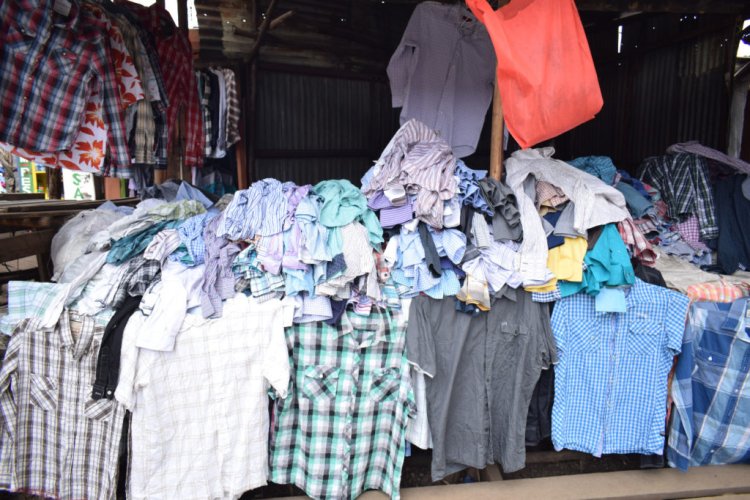How US-Donated Clothes Go Through 4 Companies Before Reaching Kenyan Markets [VIDEO]
TikTok user Rory Gallagher (@roaringtravel) educated his viewers on the reality of what happens with America’s donated items which arrive in Kenya and are sold at pocket-friendly prices.
![How US-Donated Clothes Go Through 4 Companies Before Reaching Kenyan Markets [VIDEO]](https://viraltea.co.ke/uploads/images/2023/12/image_750x_657aef2ed6a99.jpg)
A video that went viral on Wednesday, December 13 exposed the hidden intricacies clothes donated by citizens living in the United States (US) go through before being sold to thrift markets in Kenya such as Gikomba Market.
TikTok user Rory Gallagher (@roaringtravel) educated his viewers on the reality of what happens with America’s donated items which arrive in Kenya and are sold at pocket-friendly prices.
Taking the position of the average American who donates their clothes, Rory revealed that initially, the idea was to give them to the less fortunate in African countries such as Kenya for free, but they end up being shipped and sold as second-hand items instead.
Here is the video:
@roaringtravel Best kept open secret ????#kenya #kenyantiktok #nairobi #kenyantiktok???????? #mitumba #donation ♬ original sound - Rory Gallagher
"Americans don't realise that donated clothes are taken by four profit companies and sold to African markets...and that's how it ends up here in Kenya, where someone like me can buy this for Ksh400, which I think is a good price," Gallagher explained in the video while showcasing a donated shirt which was for sale.
The Tiktoker made a shocking discovery that the companies already made millions of dollars before the clothes arrived at the local markets, some of them based in the US and Europe which are responsible for selling the original clothes in the first place.
Furthermore, the government of Kenya also reaps big from importing the clothes by subjecting them to taxes as they are brought into the country.
"But there is a big problem, half the clothes that arrive here, aren't even sellable," Gallagher added while showcasing a stained blouse for sale as an example.
"Many are bad quality and a lot of them are just too big to fit Kenyans and need to be resized and trimmed down."
He added that the move creates a lot of waste which sees the residue either burned or dumped into the Nairobi River owing to the government's failure to set up a proper waste disposal plan.
The video sent mixed reactions among Kenyans, some of whom expressed their lack of surprise at thrift markets in Kenya selling clothes that are far below the recommended standards.
"The clothes were better in the past, but now that everyone wears Shien and other fast fashion brands, it becomes even harder to find good clothes," a user commented.
"A lot of costs are involved in the collection and grading of the used garments that's why the prices," a Mitumba trader weighed in.
According to a Washington Post article, some donated items do get shipped abroad and resold. However, whether or not your old clothes end up in the hands of those in need largely depends on where you donated them and their condition.
"Depending on where you donate and the condition of your clothes, they could go directly to people in need, be sold in thrift stores, get sent to other countries, or wind up repurposed as rags or another product that uses textile fibres. Some donations, however, are in such poor condition that they can only be incinerated or trashed," the article read in part.
October data from the Kenya National Bureau of Statistics (KNBS) indicated that the country imported 53,979 tonnes of second-hand clothing in the second quarter of 2023, an increase of 30.6 percent compared to 41,314 tonnes in a similar quarter in 2022.
It is the highest quantity imported since the fourth quarter of 2021 when a record 55,184 tonnes were shipped into the country.







